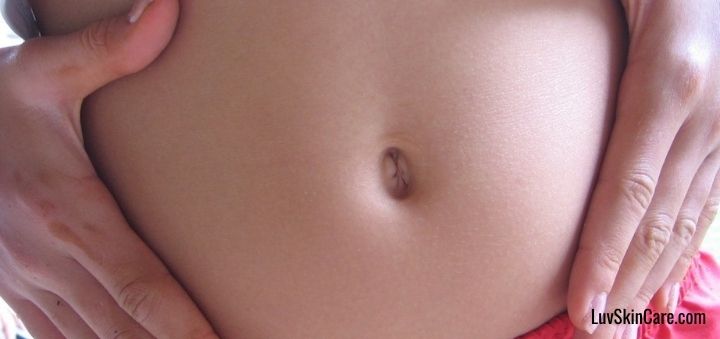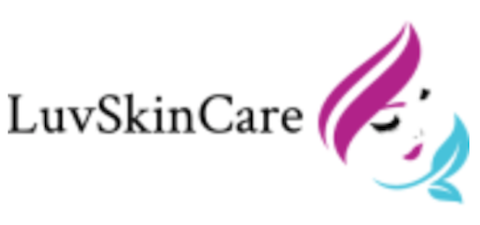Our bodies are covered in millions of tiny bacteria and fungi; we are basically a walking ecosystem. For the most part, these germs are harmless or perhaps even beneficial to our health; when things get out of balance and one type overgrows we can begin to experience health issues, though.
Contents
Table of Contents

What Is Candida Albicans?
Candida is a form of yeast that resides within your mouth and intestines that helps you digest food. It can be found in basically every single human on the planet and is a necessity for good gut health.
Candida, when overgrown, can cause some seriously unpleasant issues like leaky gut and candidiasis. The overgrown yeast can escape the intestinal lining and actually gain access to the rest of your body, creating a host of problems.
Unfortunately, acne is a common yeast presence issues.
Can Candida Albicans cause Acne?
Acne is incredibly common in those with candidiasis and is usually accompanied by compulsive, intense itching. Typically, candidiasis and other candida based health issues are sparked by some sort of strain on your body.
Common triggers include dietary plans high in processed carbohydrates, heavy alcohol consumption, birth control usage, high acid diets, diets rich in fermented foods, high stress levels, and prolonged antibiotic usage.
Your body has an inflammatory reaction to the abundance of yeast and begins to externally show its strain through acne flares.
The acne associated with candidiasis typically will spread from the face and take hold in the back, buttocks, chest, and rest of the body as well and can be nearly impossible to treat with traditional facial cleansers and over the counter acne medications.
Do I Have Candida Albicans Overgrowth?
To detect candida albicans overpresence, a doctor’s visit is necessary. Most doctors will request blood work, a stool sample, and a urine analysis.
Through these tests they will check for specific enzymes that indicate an infection is active within your body. From there, your doctor will work to determine the source of your candidiasis to better treat it.
How to Naturally Treat Candida Albicans?
For the most part, candidiasis treatment involves a dietary change. Yeast feeds off of starchy, sugary foods so eliminating them will decrease your symptoms and, eventually, clear up the overgrowth.
Many doctors also recommend a dairy free, meat free, and grain free diet, as well. The goal of this method is to starve out the yeast and leave it with nothing to survive on.
It is incredibly effective but requires a strict plan and a ton of willpower. A whole food diet featuring lots of water, nuts, seeds, green veggies, fish, and eggs works like a charm in most cases.
There is no set duration for this method, some people will feel better after one month while others will take considerably longer. No matter the amount of time it takes to restore your health, going back to an unhealthy diet can cause the overgrowth to reoccur.
Once the yeast is under control you can integrate carbs, meats, dairy, and grains back into your diet in moderation but a healthy meal plan overall is key in keeping the yeast at bay.
Another excellent way to help stop a yeast overgrowth is through consuming probiotics. Probiotic supplements are readily available at many stores and are relatively inexpensive.
Yogurt is a great treatment option if your doctor does not place you on a dairy free diet, as it contains natural bacteria that aid in regulating your gut health.
Coconut oil also has antifungal properties, making it a great option to incorporate into your diet. If you are placed on a particularly bland diet to combat your candida albican overgrowth, garlic is your best friend.
Not only does it make your food taste a thousand times better, it also has some antifungal properties as well.
The best thing you can do to stop candida overgrowth is taking steps to prevent it from ever forming. Eat a healthy diet full of micronutrients and drink enough water to keep yourself fully hydrated.
A good rule of thumb is to measure your weight in pounds then divide it by two. That number is the rough amount of water (in ounces, of course) to drink per day.
Candida Albicans and Antibiotics
Exercise good hygiene practices and try to avoid stressors that could trigger an immune response. When taking antibiotics, always finish your dose to prevent your illness from reoccurring.
Staying on antibiotics for prolonged periods of time can seriously damage your health in numerous ways on top of allowing yeast to flourish.
Following your doctor’s directions as closely as you can is key in preventing unnecessary and avoidable antibiotic usage; even if you feel better, complete your cycle of medication.
Also, never take someone else’s antibiotics, always go and get your own. Some are more effective against certain illnesses and others have no effect at all; you could very well greatly delay your treatment time and open yourself up to long term antibiotic usage.
The thing about candida is that it can take years to fully disappear. Cheating on the diet can cause you to basically restart the cycle, as yeast can grow rapidly.
Conclusion
Some people report itching for years, though the acne does typically clear up within a few weeks.
Some unlucky people affected by candida actually end up being sensitive to certain foods for the rest of their lives; one blogger chronicled how, even years later, he still will begin to itch or breakout if he consumes too much vinegar.
These types of semi-permanent sensitivities are most prevalent in those who developed the overgrowth from antibiotic usage, as the medication destroys every bacteria within their gut, leaving the yeast to flourish and take over.
Advice: Take antibiotics only when it’s a necessity!
Be cautious and take every precaution your doctor offers you while treating your candidiasis.
